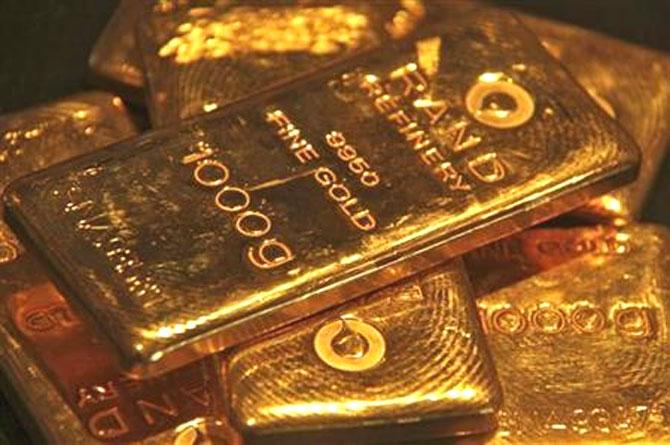The rising price of the precious metal has helped the central bank increase overall forex reserves despite currency reserves not rising, and sometimes even falling.

The Reserve Bank of India’s strategy to add gold to forex reserves has started yielding fruits. The rising price of the precious metal has helped the central bank increase overall forex reserves despite currency reserves not rising, and sometimes even falling.
According to the RBI’s forex reserves data, put out every week, its foreign currency reserves in end-June was $400 billion. On August 2, it fell marginally to $399 billion, according to data released on Friday.
In the same period, however, the gold reserves increased $2.2 billion to a total of $25.16 billion.
Total forex reserves, including all assets, were $427.68 billion in June-end. It increased by only $1.27 billion as of August 2.
Hence, increase in gold reserves has kept the total reserves growing.
This is an important because earlier, the RBI was reluctant to add gold to its reserves as part of policy.
In November 2009, it had bought 200 tonnes of the metal from the International Monetary Fund for $1,032 per ounce. After that, it was only in March 2018 that it bought 2.4 tonnes.
Since then, the RBI has bought 60 tonnes of gold, taking its total holding to 618.2 tonnes.
In the same period the foreign currency reserves have remained more or less the same but gold reserves have increased almost 20 per cent, thanks to increase in stock and also price of the metal.
Gold price is marked to market as per formula once a month.
Sources in the sector said the decision to add gold to forex reserves was strategic because most central banks were using the precious metal as a hedge against changing financial market risk and the dollar.
In 2018, central banks added 651 tonnes to their reserves. In the same period, the RBI added 42 tonnes.
An economist specialising in banking, who did not want to be named, said, “The RBI is also buying gold as part of forex reserves because it is selling sovereign gold bonds on behalf of the government. These bonds have no hedging, but adding gold to reserves is equivalent to hedging that risk.”
Sovereign gold bonds were first issued in November 2015. Since then, the RBI has sold such bonds worth 25.37 tonnes of the precious metal, according to the World Gold Council.
In a recent interview RBI Governor Shaktikanta Das said, “For deployment of (forex) reserves, there is a clear understanding about how much should go into bonds, how much should go into gold assets, and within bonds how much should go into each country. Also, we have set criteria that say there should be safety, liquidity and return on our investments, in that order. Therefore, a certain portion is also held in gold as part of our asset diversification strategy.”










